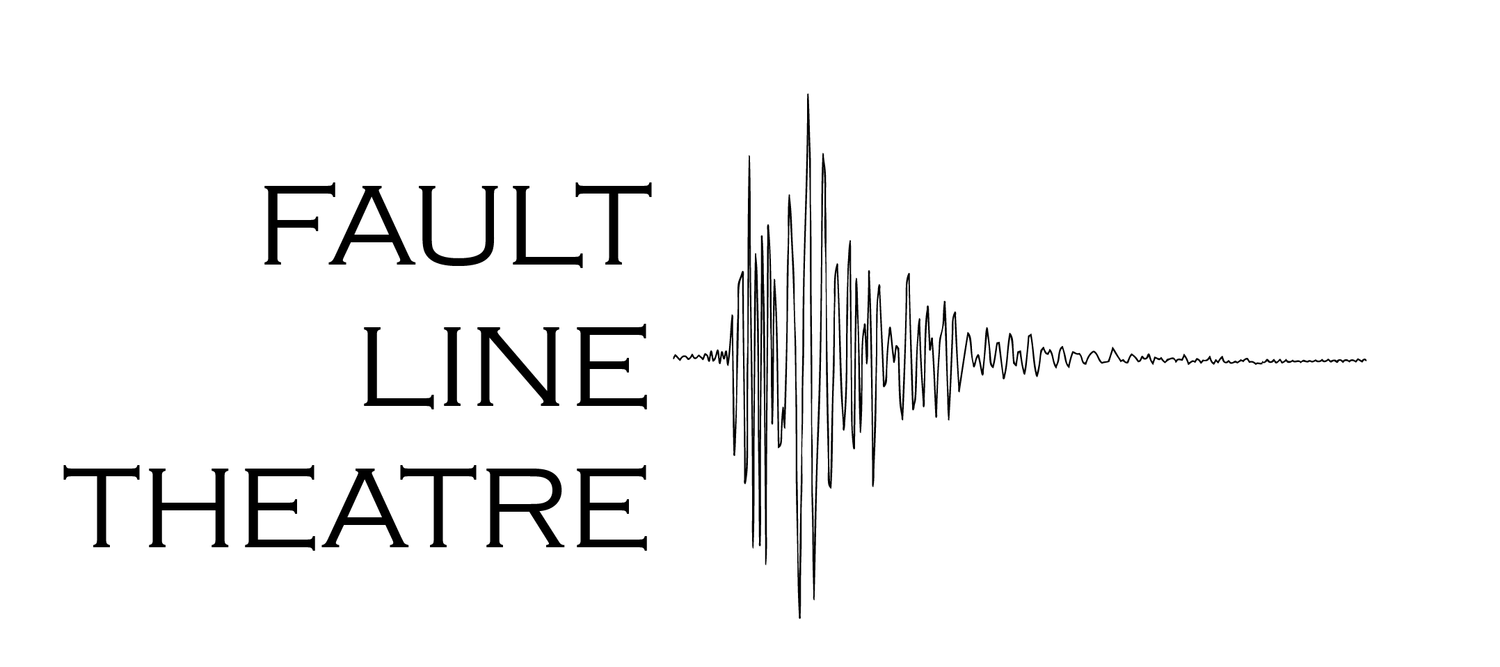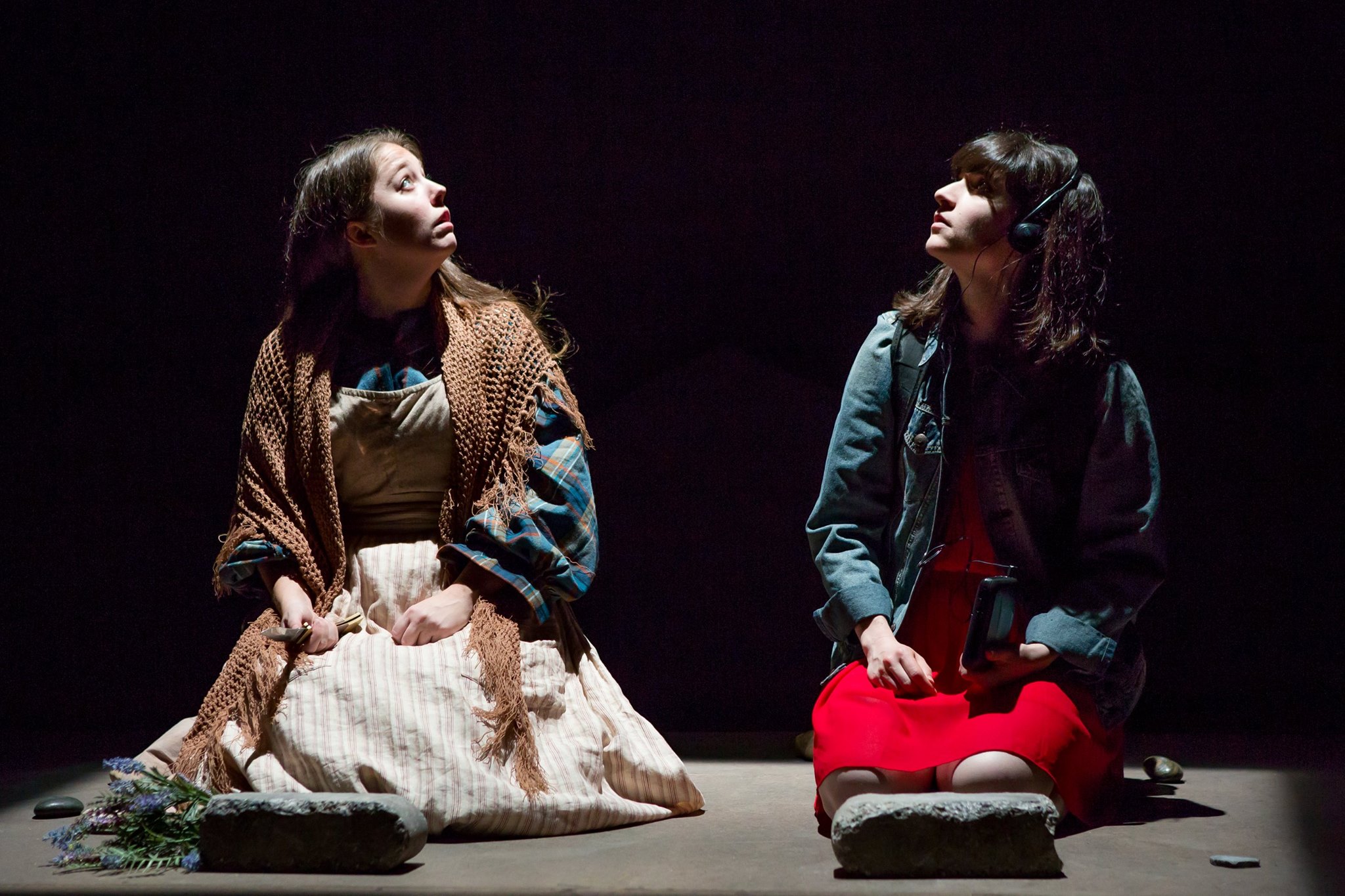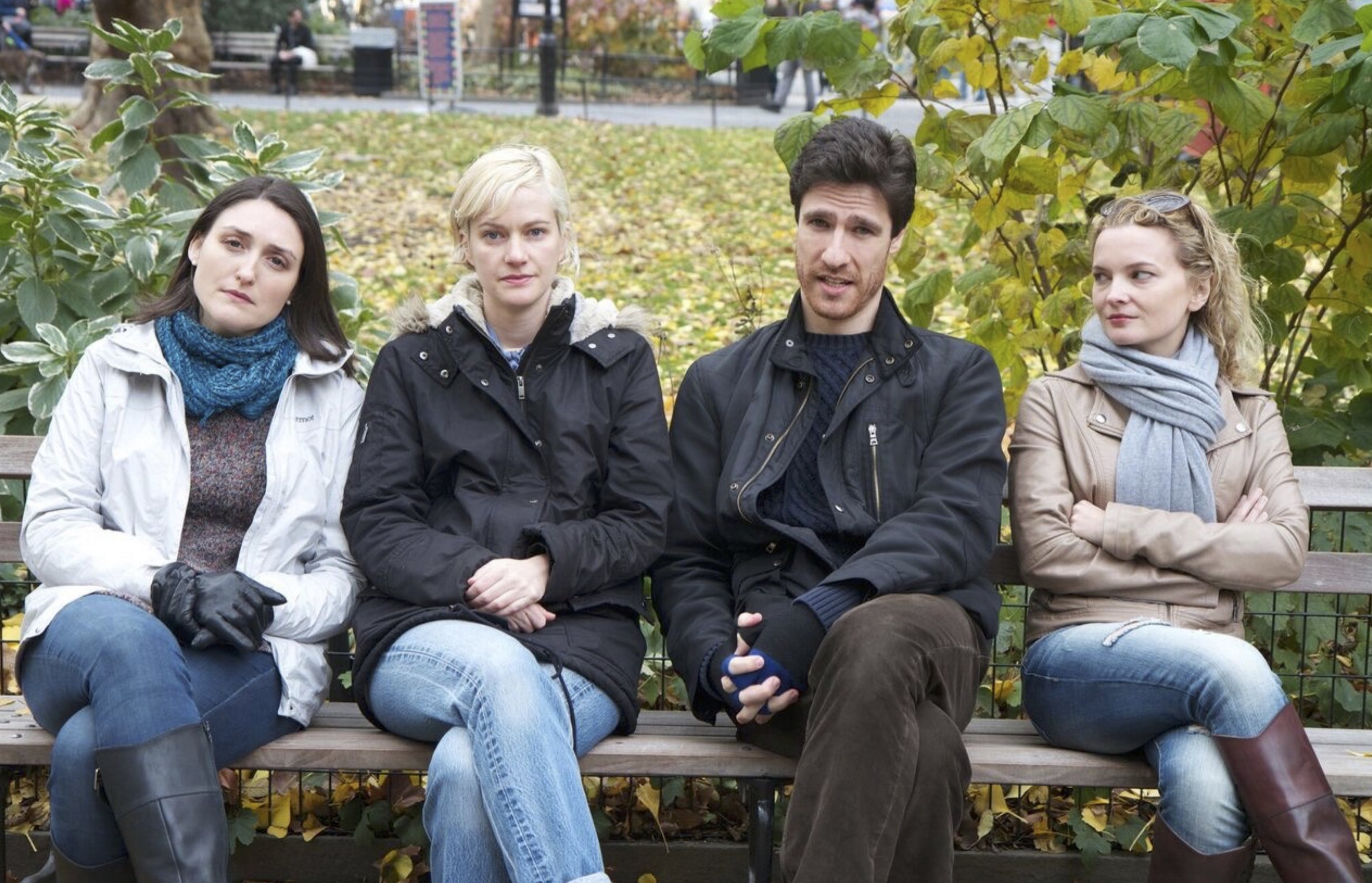In this fantastic interview with NY Theatre Guide, The Oregon Trail playwright Bekah Brunstetter discusses the important things, like the best sandwiches and LA spin classes for playwrights.
Discovering the Artist: Playwright Bekah Brunstetter of ‘The Oregon Trail’
By: Megan Lohne
With her previous productions of “Oorah!” at The Atlantic and “Be A Good Little Widow” at Ars Nova, Brunstetter has a playful, earnest, and thought-provoking voice that continues to grow. Last week, I had the pleasure of seeing the latest incarnation of her play “The Oregon Trail” at The McGinn/Cazale Theatre, produced by The Fault Line Theater, now playing through February 12th.
This comedrama, directed by Geordie Broadwater, follows the story of Jane, a 13-year- old in the 90s, and another Jane from the 1830s (played by the delightfully perfect Emily Louise Perkins). While 90s Jane navigates “The Oregon Trail” computer game to fill her lonely afternoon, 1830s Jane traverses the real Oregon Trail, losing her possessions, family, and joy along the way. It’s an honest, funny, heartbreaking piece about earning sadness and our human entitlement to feel things deeply.
Currently writing for the hit “This is Us” on NBC, my old grad school mate took a few moments to answer my questions about success, process, and DUH, sandwiches.
Where did you first get the idea for “The Oregon Trail”?
It started in grad school (with you!) when we had an assignment, I think, to write the first ten minutes of a new play that took place in a very specific location. I’d been thinking about sadness a lot at that point, and to what extent the “easiness” of life now allows us to indulge that feeling, whereas on the Oregon Trail, it was certainly harder to say you didn’t feel like getting out of the wagon in the morning. And so I thought it might be interesting to juxtapose a young woman now with a young woman then, and really have them occupy the same space, like physically and emotionally, and then see what happened.
What is your writing process like/re-writing?
I always begin with the ending, that’s the thing I know first. And so I just try and get there, to that ending. My first drafts are very VERY not meticulous. I just kinda get it all out, and oftentimes the characters sound like each other, and are sometimes arch and not fleshed out. I’m more focused on what I’m trying to say and what the images are and all of the verbal diarrhea of the first draft. I don’t actually fix or figure out my play until I’m in a room with actors, who then really help me figure out fully what kind of humans my characters are.
What’s the first play that made you cry?
Oh man, that is a great question. I think it was “Children of Eden,” which is a musical about Adam and Eve. I was in in it high school – I was a chorus person, I was supposed to be a frog or maybe algae, I was like crawling and sliding around on the floor. And to me the songs are so beautiful, because the characters are trying to figure out what the hell life even IS, what it is supposed to be; they are dealing with temptation, trying to figure out what’s right and wrong. And that really resonated with me at the time, so I cried a lot when I was supposed to be singing, but I guess it kind of worked.
What is most important for you in a relationship with your director?
I need someone I can have a drink with, hang with, and reveal way too much personal information and then THEY reveal two much personal information and then we laugh and feel like not just collaborators, but friends. Someone that I can be myself around, for sure.
Other passions aside from writing?
I love to cook/bake/experiment in those realms. I love reality baking shows and am most recently clinically obsessed with Vivian Howard, an award-winning chef from my home state of NC, who is transforming the food scene down there with her beautiful farm-to- table restaurant in Kinston. I am passionate about making her foods and thinking about what life lessons I can glean from her work ethic. And also food. FOOOOOOOD.
I am equally passionate about spinning. Not in circles. On a bike. Sheila Callaghan went from being my favorite lady playwright to my favorite lady playwright and ALSO my spinning teacher. She teaches at a place in LA and is completely amazing. Sometimes, her classes are half playwrights, and that is always weird and fun.
What has the transition from stage to TV writing been like? If you could give advice to young writers attempting to make the same leap, what would it be?
I’d say it’s been pretty painless because writing is writing, though TV certainly has a different language and set of rules that must be learned. But it’s character, and story, and dialogue, which playwrights know. I really love being a hired hand, helping someone execute their grand vision. I love that it’s not just on me, I love the collaborative nature of it. But I’ve definitely had to learn the form. The structure of a good episode of television, one that is economical, that keeps people guessing, is definitely not something that comes naturally to me, but something that’s been awesome to learn, as it’s helped my plays get tighter.
Very much still learning, though. I have yet to sell a pilot/come up with my own show, because my ideas are all plays and refuse to be shows, but I’m working on it! To young writers: don’t bother with spec scripts, focus on YOUR voice, and write a pilot to a show that ONLY YOU COULD WRITE. Shut out every other show you’ve ever seen, pretend you’ve just been born, and write from that place.
If you could eat a sandwich with any living artist, who, and what would you ask (seriously though, what’s on the sandwich)?
Megan, you are making my day with these wonderful questions. First and foremost, it would be a sharp grilled cheese on wheat bread with sharp mustard and basil and sliced heirloom tomatoes with a little Sriracha to dip it into on the side. Secondly, I would have this sandwich with Sarah Ruhl, and I would ask her what it’s like inside of her head, and how her ideas come to her.
When you think of the word success, what does that mean to you?
Oh man, what a fleeting and elusive word. Even when I’m supposed to feel “successful,” it always feels like whatever I’ve done is not enough, that I must do more. I’ve definitely been redefining it for myself as of late, shaping it into something I could actually find myself feeling. I think for a writer, success is always having a mind that is open and absorbing things and turning those things into stories, characters, and moments. As long as my brain is still doing that, Je suis success.
Biggest accomplishment?
Honestly, after years of kissing the wrong ones and turning them into plays, I somehow managed to land and subsequently marry the kindest, most loyal, most handsome of men. (Aww vomit/sorry I just got married/I’m sorry!)
Five years from now, you will_____________.
Hopefully still be writing, but also surrounded by cake flour. I would also like to have a yard and a window looking over it.
Favorite book/play/movie/animal?
“Love in the Time of Cholera”/”Dead Evan Hansen” is my new favorite/”The Sound of Music”/basic tie between fat cats and fat dogs.
What was the hardest scene you ever had to write?
I’m working on a play right now about same-sex marriage in NC, and those who oppose it — it’s an attempt to humanize those people, but also show how they could maybe change — and every scene, so far, is the hardest I’ve ever had to write.
Who are the first names of the four other members in your “Oregon Trail” Party?
Julien Patton, Gavin Rossdale, Claire Danes, God.
How do you think the game culture shaped the 80s/90s kids?
Well, it shaped us WELL. We are well-shaped. No really, I love that we were kids without cell phones. I think we have slightly less ADD and are good at problem solving.
Finally, what’s your favorite curse word (how could I not ask? – remember, this is a family publication)?
Cheese and Criminy. It’s what my Dad says instead of Jesus Christ. It’s the best.
“The Oregon Trail” is currently playing through February 12, 2017 at The McGinn/Cazale Theatre. For more information and tickets, click here.











